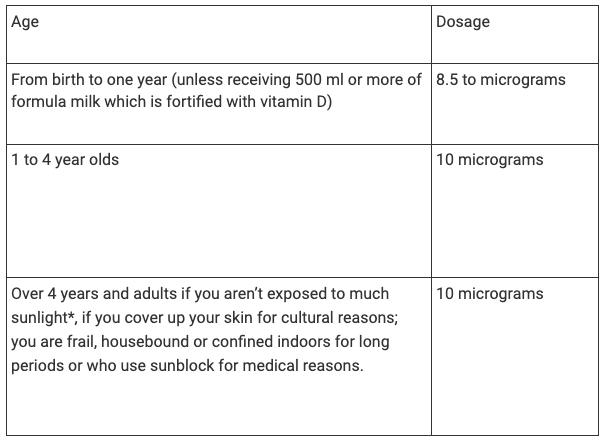Low Vitamin D
Dealing with low Vitamin D
How can I help myself?
As we cannot make vitamin D in our skin from October to March some people might not have enough to last over the winter and may need a supplement to boost their diet. Advice from Public Health England (PHE) is for everyone to get a daily intake of 10 micrograms of vitamin D. As we don’t know who is getting enough sunlight exposure to make vitamin D, and to cover the minority of people that might be at risk of vitamin D deficiency, PHE have given a dietary recommendation for everyone.
Should I take a vitamin D supplement and what dose do I need?
Vitamin D supplements are recommended if you are likely to be getting inadequate amounts from sunlight and food sources (naturally occurring or fortified). Public Health England recommends a supplement:

*around 10 minutes twice a day without suncream taking care not to burn. Sunlight only makes vitamin D in your skin from April to September.
Talk to your doctor if have a condition or treatment such as the following when a vitamin D supplement may also be important:
- severe liver or kidney disease or a condition that affects the way you absorb food
- long-term anti-epileptic drugs, because these alter the way vitamin D is broken down and used by the body and can affect the absorption of calcium.
Pregnant and breastfeeding women and people with darker skin because of their ethnic origin are not in the ‘need a supplement’ group (see above) but, like everyone, need to make sure they are getting sufficient vitamin D in food and, if not, consider taking supplements all year round. The recommendation is that everyone should make sure that they are getting 10 micrograms daily from food sources and consider whether they need a supplement especially during the autumn and winter months (the end of September through to the end of March).
10 micrograms (μg) is equal to 400 International Units (IU)